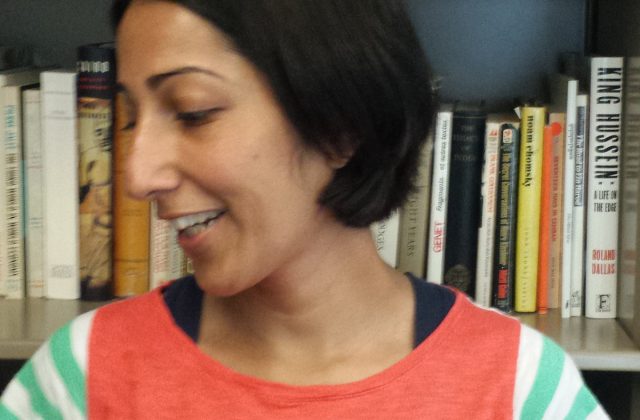Personalia
Nadia Latif, born in 1978. Ph.D. from Columbia University. Assistant Professor of Religious Studies at Georgia State University.
EURIAS Fellow (1 Sept 2016 – 30 June 2017)
“The roof is falling on our heads”: Palestinian camp refugee narrations of home and homelessness
Project Description
Over the last decade, Palestinian refugee camps in Lebanon have been portrayed in policy and media discourses as breeding grounds of fanaticism and as refuges for Muslim militants from all over the world. Drawing on: i) contemporary debates on religion and secularism; ii) historical approaches to the constructions of sectarian identities in the modern Levant; and iii) recent ethnographies exploring the role of Islam as a discursive tradition in contemporary articulations of national and trans-national identity and community, the proposed book project will examine the ways in which the current conflicts in the Middle East are shaping narrations of Palestinian identity in the refugee camps of Lebanon.
During field-research conducted after the Arab Spring and the beginning of the wars in Syria and Iraq (summer 2011,2014, 2015) Palestinian inhabitants of Bourj al-Barajneh refugee camp narrating the role of Islamic beliefs and practices in their everyday lives described intergenerational changes in terms of wa ‘? (awareness, attention, carefulness, consciousness). Second and third generation refugees depicted the first generation as simple people who prayed and fasted but were ignorant of the correct way to perform these rituals, and the true meaning behind them. First generation refugees concurred in this representation.
According to these narratives, over the decades, camp refugees have gained in wa ‘? d?n?, which is why more refugees desire to acquire knowledge about Islam and learn how to practice it correctly. Significantly, none of the generations provided a time during which wa ‘? began to increase. Neither did they contextualize this change in relation to shifts within struggles for Palestinian nationhood,the broader geopolitical occurrences of the last three decades, or the local sectarianized resonances of those occurrences. If referred to at all, these resonances were dismissed as ‘politics’, unconnected and irrelevant to the increase in wa ‘? d?n?.
Drawing on ethnographic and literary examinations of narrative and narration, the proposed project approaches ethnography as the anthropologist’s narration of narratives produced through the interaction of the anthropologist and her interlocutors as shaped by their shifting, mutual positioning of self and other. These narratives are addressed not only to the anthropologist, but to all audiences that her interlocutors perceive her to have access to. They are shaped by local, regional, and global events at the time of narration. Lastly, narratives may be constituted as much by silences as they are by words.
Hence, the aim of the proposed book project is to contextualize and explore these narrative shifts in light of regional and global political,economic, and social transformations that erupted into the Arab Spring and have had convergent and divergent local consequences.
Selected Publications
2016 ““Syria’s Heart Eating Cannibal”: New media technologies, war crimes, and the production and consumption of (self)incriminatory narratives. “ (in progress).
2012 ““It Was Better During the War”: Narratives of Everyday Violence in a Palestinian Refugee Camp.” Feminist Review. 101: 24‐40.
2012 “Belonging and Un‐Belonging: Home in Bourj al‐Barajneh Refugee Camp,” in Anywhere But Now: Landscapes of Belonging in the Eastern Mediterranean. Eds. Samar Kanafani et al (Beirut: Heinrich Boll Stiftung Middle East): 25‐36.
